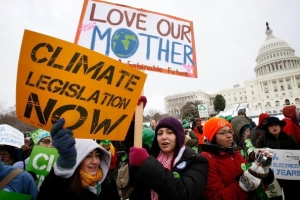This weekend (September 12-13, 2015) an new publication appeared that I was privileged to co-author with Heila Lotz-Sisitka (Rhodes University), David Kronlid (University of Uppsala) and Gothenburg), Dylan McGarry (Durban University of Technology) for Current Opinion in Environmental Sustainability (Vol 16:73–80). It is one of the first papers that I know of that begins to question the emphasis on adaptation and the development of ‘adaptive capacity’ and instead introduces the need for transgression and disruptive capacity if we are to transition towards a new world based on alternative (including ancient ones) values and principles than current dominant ones. Here’s the abstract follow by some highlights in bullet form. The paper itself can be found here for personal use (not for distribution). Transgressive Social Learning The work was supported by a grant by the ISSC.
Abstract
The nature of the sustainability challenges currently at hand is such that dominant pedagogies and forms of learning that characterize higher education need to be reconsidered to enable students and staff to deal with accelerating change, increasing complexity, contested knowledge claims and inevitable uncertainty. In this contribution we identified four streams of emerging transformative, transgressive learning research and praxis in the sustainability sciences that appear generative of a higher education pedagogy that appears more responsive to the key challenges of our time: 1) reflexive social learning and capabilities theory, 2) critical phenomenology, 3) socio-cultural and cultural historical activity theory, and 4) new social movement, postcolonial and decolonisation theory. The paper critiques the current tendency in sustainability science and learning to rely on resilience and adaptive capacity building and argues that in order to break with maladaptive resilience of unsustainable systems it is essential to strengthen transgressive learning and disruptive capacity-building.
Highlights
- The ‘learning modes’ needed for responding to and engaging the wicked problems of sustainability, require pedagogies that are not constrained by current use of limited concepts (e.g. the resilience concept), or by disciplinary decadence.
- Concepts such as resilience can be problematic when they keeps hegemonic unsustainable systems, patterns and routines from changing.
- Disruptive capacity building and transgressive pedagogies are needed to create a world that is more sustainable than the one in prospect.
- Transformative, transgressive forms of learning require engaged forms of pedagogy that involve multi-voiced engagement with multiple actors as well an emphasis on co-learning, cognitive justice, and the formation and development of individual and collective agency.
- Higher education institutions should provide space for transgressing taken-for-granted norms, existing ethical and epistemological imperialism in society and higher education itself, and in doing so provide possibilities for engaged, lived experience of transformative praxis for students as a necessary part of their education.


Beste Professor Wals, we luisterden met aandacht naar uw presentatie op 16 September in Harare. Is de powerpoint beschikbaar en waar zouden we ‘m kunnen vinden? Dank u wel!
Hoi Arjanne, mail me even via arjen.wals@wur.nl dan deel ik hem via dropbox!